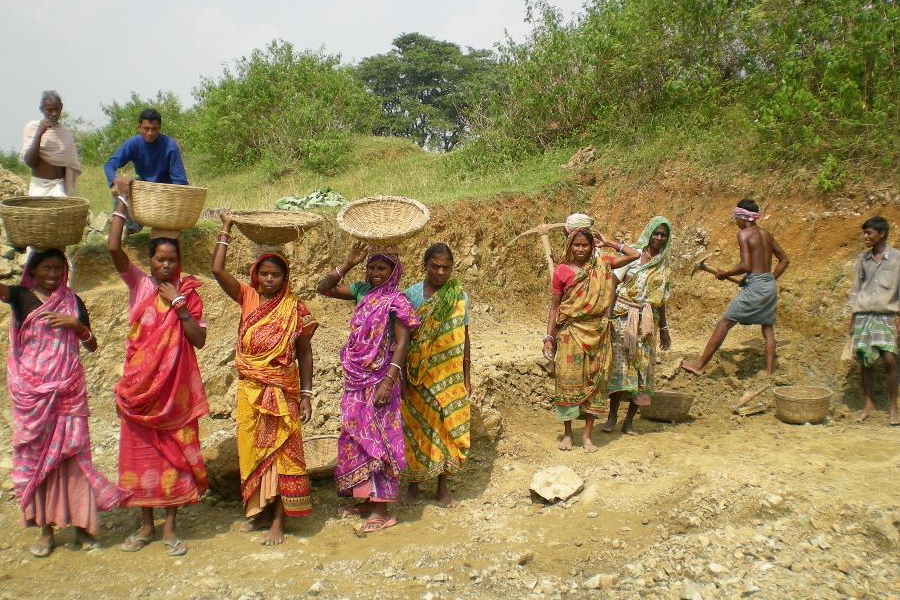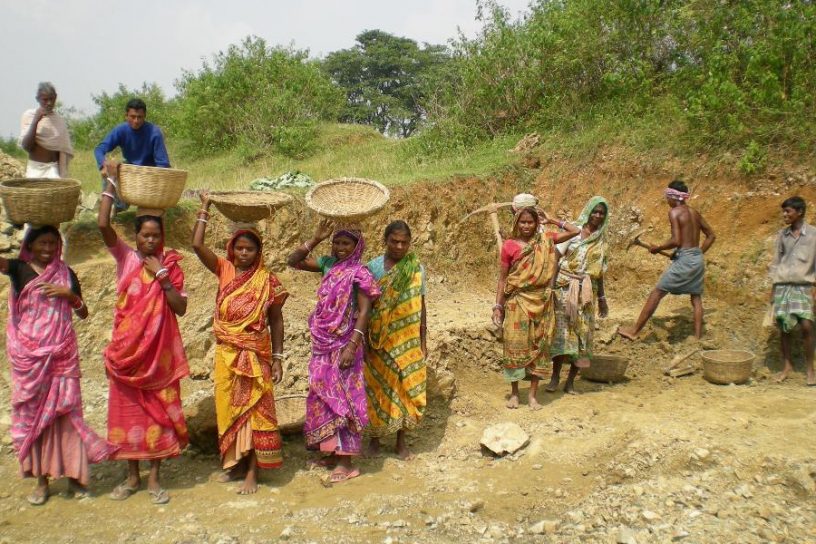
During the BJP’s reign, on average, fewer person-days of employment have been generated each year and fewer households have received 100 days of guaranteed work under NREGA.
Author
Swati Narayan, Associate Professor, Jindal School of Public Health and Human Development, O.P. Jindal Global University, Sonipat, Haryana, India.
Summary
The NREGA has been repeatedly undermined. Calculations show that since the Bharatiya Janata Party came to power (2014-2020), coverage has substantially reduced compared to the previous six years of the UPA regime (2008-2014). During the BJP’s reign, on average, fewer person-days of employment have been generated each year and fewer households have received 100 days of guaranteed work. Financial allocations have also declined (0.47% of GDP on average during UPA versus 0.35% under the BJP).
Distinct trends were visible across the states too. Those ruled by ‘double-engine’ BJP governments tended to provide lesser days of NREGA employment than those ruled by Opposition parties. In 2019-20, Congress-ruled Rajasthan provided the highest average of 31 days of NREGA employment for each rural household in the state, followed by Congress-ruled Chhattisgarh and the communist-led coalition in Kerala at 29 days.
Since the turn of the millennium, a few developing countries have also implemented similar ‘employer of the last resort’ programmes. The Jefes de Hogar in Argentina employed workers in day-care centres, homeless shelters, soup kitchens and recycling to establish a wage floor across sectors. But the scheme became unviable within a few years as Jefes wages could not keep pace with minimum wages and inflation. Ethiopia’s Productive Safety Net Programme continues to remain invaluable as the sixth year of drought looms. The PSNP also has a flexible dual payment option. In 2008, most PSNP workers opted to be paid in food rather than cash to combat inflation. But in South Africa’s Expanded Public Works Programme, the multiplier effect of cash wages on pro-poor GDP growth is estimated to be greater than the cost of the implementation of the programme. The Rwandan Vision 2020 Umurenge Programme has also supported thousands of women-headed families after the genocide. Closer home, Bangladesh’s 100-day Employment Generation and Nepal’s Food for Work were also inspired by the NREGA.
Published in: The Telegraph
To read the full article, please click here.


